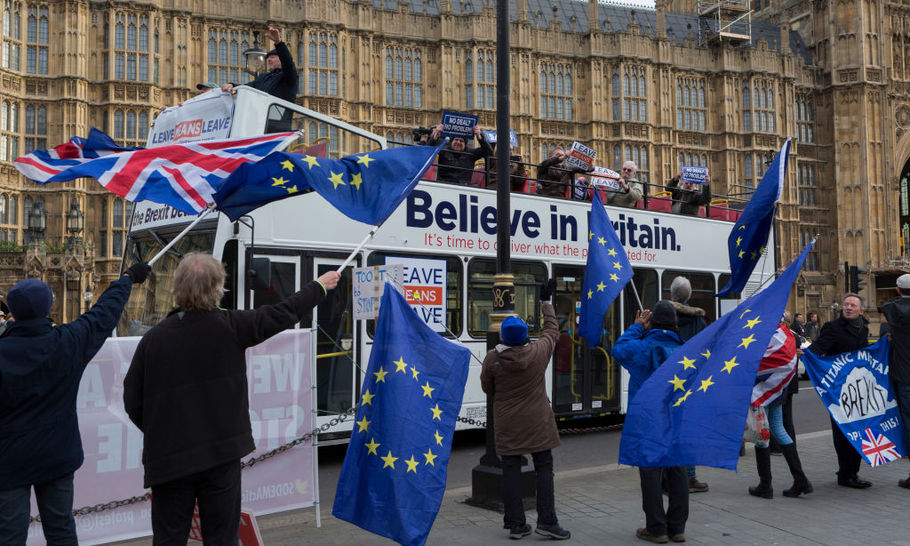The Brexit conversation has ended in civil war

Richard Baker / In Pictures via Getty Images
The on-going joke about Brexit is that those who want it seek to drag the UK back in time. Jacob Rees-Mogg is often referred to as “The Honorable Member for the 18th Century” and the “Dunkirk/Blitz spirit” is invoked to describe the grim tenacity of the those seeking a hard Brexit. And that’s before we even begin to get into the superiority complex the nation supposedly has, a hangover from the days of Empire, and victories over the great precursor of European Unity by fiat, Napoleon Bonaparte.
David Starkey recently wrote a column in which he compared Brexit to the first major schism over English sovereignty, between Henry VIII and the Roman Catholic Church. Perhaps there is merit in that comparison, but the period I feel we have gone back to is a little later than that.
When last our nation seemed so divided, it was between Cavaliers and Roundheads, Catholics and Protestants. Then, of course, the two opposing political factions went to war, and persecution for spiritual misdemeanours could result in death. Today, our political and spiritual divisions have, so far, stopped short of violence, but the vitriol is certainly there. One need only look at the way the two sides describe the other: last week, effigies of the prime minister and the mayor of London were dragged through the streets by an angry leave voter, and for almost two years, arch remainers have almost revelled in the deaths of elderly leave voters. Matthew Goodwin, author of many notable pieces on populism, found that significantly more remainers would not be prepared to interact with leavers on a professional or personal level, if given the option.
All this is set against the backdrop of increasing religious intolerance – the insidious ‘normalising’ of anti-semitism on the left. (So determined were commentators to find an example of right wing racism against Jewish people, Dawn Foster and Business Insider recently accused Suella Braverman, a Tory MP, of using an ‘anti-semitic trope’ when she referenced cultural marxism. If anything, the attempt to smear the wife of a Jewish man backfired, with Labour supporters accused of using it to cover up their own antisemitism, rather than address the issue.)
But alongside the political and religious intolerance, what many haven’t noticed is the creeping effect of a form of puritanism that has begun to affect people’s lives more and more.
The upcoming ‘porn ban,’ government plans to curb access to online arousal, is just the latest in an increasing clampdown on freedom. Smoking bans, alcohol taxes, junk food regulations and plenty more have all marched slowly into our daily lives, and debates over what is and isn’t acceptable to think or say, on everything from transgenderism to homosexuality to cultural appropriation, have erupted out of nowhere. Ten years ago ‘intersectionality’ was a term barely heard beyond university seminars, and yet now you can barely shuffle in your seat without the Guardian calling you out for your sedentary privilege, or Teen Vogue questioning whether communism could solve the discomfort caused by the chair.
The secular age of liberalism is regressing, back to an age of mistrust, suspicion, and moral puritanism. There appears no narrow point where the in-out leave-remain valley can effectively be bridged. And what’s worse, this is not being driven by one side in particular, but by all participants. No faction seems prepared to compromise on anything.
Brexit was seen by so many as the chance to take back control, from the state, from the puritans, the nannies and, yes, the European Union. It was meant to open a debate on what kind of country a post-imperial Britain wished to be. But all that has been revealed to us is that Britain is not a country mature enough to have the conversation. Two years of backstabbing, empty promises and stuttering have been wasted. People are as angry, if not angrier, than before the referendum. Perhaps this is how it has to be. Harsh medicine for a harsh condition. But even if we come out stronger, that doesn’t make the new English Civil War any more edifying.




